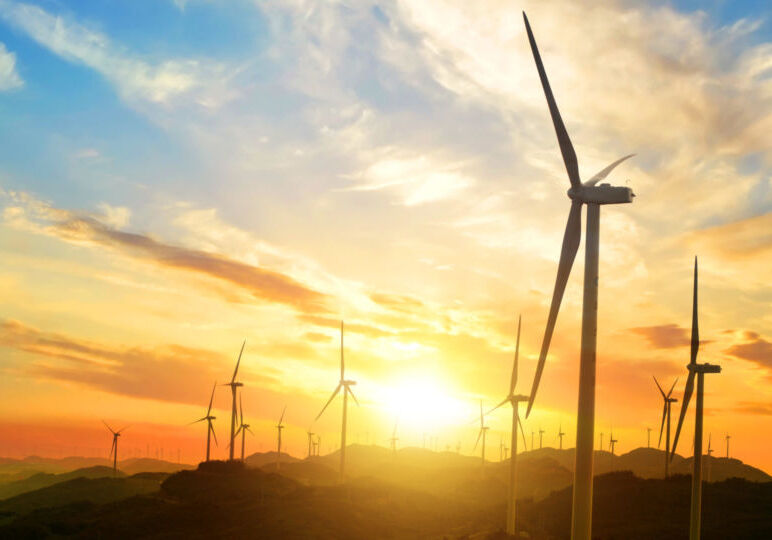Tides of change for Thailand. An outlook on the kingdom’s growing green energy economy

Last March, as many businesses halted operations in the wave of COVID-19 disruption, Thai Oil was celebrating new beginnings. The country’s largest oil refinery held a ceremony, and laid the foundation stone for the main production control building of its Clean Fuel Project at the 276,000-b/d refinery at Sriracha.
The $4.825 million CFP is the Eastern Economic Corridor’s first private sector megaproject and aims to position Thailand as a rising energy hub in Southeast Asia. And a sign that the post-pandemic market could be the ideal climate to grow Thailand’s green energy economy.
Laying the foundation for clean fuel
Thailand has been laying the foundations for clean fuel for years. The nation’s Power Development Plan, originally approved in 2015, set out to increase the percentage of non-hydro renewables in the energy mix from less than 5% to 30% by 2037.
This is an ambitious target for a country still heavily dependent on fossil fuels, which hold an 81% share in Thailand’s total energy demands. But as sustainability rises to the top of the agenda for governments and businesses, it is also a key move to keep up with neighbouring countries in the region, who are setting their own sustainability goals. China, the largest renewables market in the world, has pledged to cut its carbon dioxide emissions by “at least” 65% from 2005 levels by 2030. Low emissions and clean fuel are no longer just good for the environment, and good for business. They are an integral part of national infrastructure and Thailand’s advantage on a regional landscape making a seismic shift towards a cleaner economy.
Expanding into new assets
For the region’s downstream industry, this is an opportunity to adapt. Oil and gas are well established as two of the largest sources of CO2 emissions from fuel combustion in Thailand. Thailand’s oil and gas operators are no newcomers to sending strong sustainability messages: as early as their 2018 annual report, Thai Oil and its subsidiaries implemented “over 25 programs for increased energy efficiency in the production process… [resulting in] reductions of direct greenhouse gas emissions by 32,151 tons of carbon dioxide equivalents per year”. In the same report, they pledged future research and development to reduce global greenhouse gas emissions.
As new technology introduces new avenues for clean energy, operators no longer need to focus on just adapting their existing business models: they can also diversify and explore new avenues. As we enter the next phase of the energy revolution, entrepreneurs and investors are looking to Thailand as the next Southeast Asian hub for electric vehicles. This isn’t just on the road. This January, the kingdom announced the launch of their first electric e-ferry, a vessel which would save the same amount of emissions in one year as planting 8,700 trees.
“When the world is calling for lower carbon emissions, we are foreseeing this same challenge and are now transitioning to cleaner and smarter assets in our strategy,” explained Somruedee Chaimongkol, CEO of the project’s collaborator Banpu PCL. Previously dubbed the “first lady of coal”, she and her energy company are on a self-proclaimed mission to lead Thailand’s energy industry on a “greener and smarter” strategy.
New directions at national level
Public and private sector institutions are responding to these growing trends. The Federation of Thai Industries is working with energy authorities to draft a pioneering Thailand Integrated Energy Blueprint, which would establish a zero-carbon emission goal in response to the rising trends of renewable energy and vehicles.
The Thai government’s National Climate Change Master Plan cites the carbon market as a vehicle to promote energy efficiency and work towards its target of reducing carbon emissions by 20.8% before the end of the next decade.
The COVID-19 pandemic has intensified this urgency. Government curbs to cull the coronavirus spread have led to the sharp drop in domestic fuel demand and caused oil refineries in Thailand to reduce run rates by 10% to 20%. To plug this gap, national leaders are under pressure to ensure that there are other avenues for this important sector of the Thai economy to survive and thrive.
Rising to meet the hydrogen economy
Achieving this should come naturally to Thailand. The country is building a position among regional frontrunners when it comes to developments in low carbon nuclear energy research. As the hydrogen economy gains momentum across ASEAN, fueled by the growing demand for petrochemical products such as sanitizer, detergents and plastic packaging, Thailand could “take the lead by investing in research and development for hydrogen produced from both renewables and non-renewables and by setting targets learning from OECD countries to guide the investment”. Government arms, such as EGAT (the Electricity Generating Authority of Thailand) are partnering with local private sector to “deploy green hydrogen gas as a carbon-free energy carrier”.
Some business leaders believe that “this has the potential to replace fossil fuels completely”. Thailand’s state controlled oil and gas company PTT is already safeguarding against this shift, by “natural gas production and power generation”.
Sustainable agility won’t only benefit the environment. It can also provide support to a struggling downstream industry as it emerges from tough times. At a recent community event, Wirat Uanarumit, CEO of Thai Oil, concluded the turbulent 2020 with the statement:
It is this continued ambition for social – and commercial – value that will help forge the path to recovery and success: for the planet. And its people.
Read more:
- Neste and DHL Group to Tighten Collaboration to Reduce Logistics Emissions
- Singapore Airlines Group and Aether Fuels Sign Memorandum of Understanding for Sustainable Aviation Fuel
- Bangchak Rises to No. 6 in the Top Companies Most Desired by Young People Reinforcing its Sustainable Corporate Image with “100x Happiness” to Boost Employee Happiness a Hundredfold
- Interviews at ADS, ARTC & ACCA 2024
- Event Highlights at ADS, ARTC & ACCA 2024